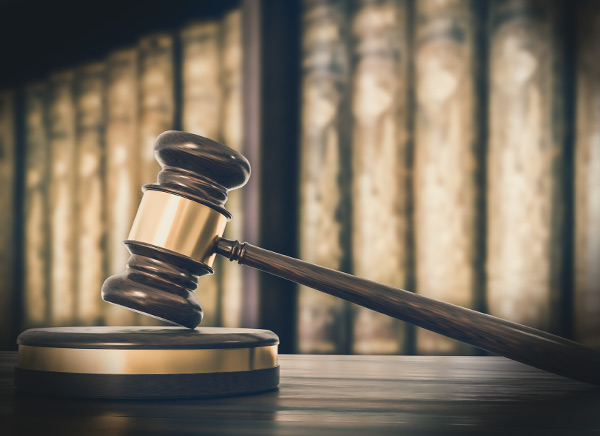MESA, AZ CHAPTER 7 BANKRUPTCY ATTORNEY
Experienced Bankruptcy Lawyer Serving Queen Creek, Gilbert, Mesa & Phoenix
Chapter 7 bankruptcy is the type of bankruptcy you probably think about even if you know little to nothing about the institution. Filing can help you discharge qualifying debts and stop damaging collection actions, including wage garnishments and bank levies.
This type of personal bankruptcy often makes the most sense if you face overwhelming debt but have little to no current income. Our Mesa, AZ Chapter 7 bankruptcy lawyer will discuss your financial circumstances in detail and determine if this approach is right for you. Our team at D.M. Bankruptcy Law Group, LLC has over 20 years of collective experience and has successfully handled over 1,500 cases. We can guide you through each step of the Chapter 7 filing process, help you minimize the impact of liquidation, and work to make the most of your filing.
We sincerely care about our clients and always provide non-judgmental representation. Schedule a free consultation with our Mesa Bankruptcy Lawyer to learn more about how Chapter 7 bankruptcy can help you overcome overwhelming debt. Call (480) 842-8786 or contact us online today!
REQUEST A FREE CONSULTATION
HOW DOES THE CHAPTER 7 BANKRUPTCY PROCESS WORK?
When you choose D.M. Bankruptcy Law Group to represent your case, you will work directly with Attorney Dutkiewicz. He is available after typical working hours to make sure he can answer all of your questions and be there whenever you need him.
Chapter 7 bankruptcy is one of the most popular forms of bankruptcy, but not everyone qualifies to file for it. You will need to pass the Arizona Means Test if you wish to file for Chapter 7.
If your current income is less than the state’s median average for your household size, you automatically pass and can file. If your income is higher than the median average for your household size, you will need to tabulate your disposable income. If your disposable income is sufficiently low, you can still file for Chapter 7 bankruptcy.
After filing for bankruptcy, you will need to take part in a “meeting of the creditors” led by a bankruptcy Trustee assigned to your case. Following this meeting, you will go through a liquidation process. This involves the Trustee selling – or liquidating – non-exempt assets to partially repay your creditors. Keep in mind you will be able to exempt some assets, so you will not be left with nothing. Once the liquidation process has been completed, you will most likely be eligible for a debt discharge.
What Is a Discharge in a Chapter 7 Bankruptcy?
When you obtain a bankruptcy discharge after completing your Chapter 7 bankruptcy, you will no longer owe the dischargeable debts listed on your bankruptcy paperwork. These qualifying debts are effectively forgiven. We can assess your financial circumstances and determine which of your debts qualify for discharge.
What Debts Are Dischargeable in a Chapter 7 Bankruptcy?
Unsecured debts are generally dischargeable in a Chapter 7 bankruptcy. This means you will likely be able to eliminate credit card debt, medical bills, personal loans, and unpaid utility bills.
There are several types of debts you cannot typically discharge. Recent tax debt is not usually eligible for a discharge, but under very specific circumstances, older income tax debt can be dischargeable. Many types of student loan debt are not dischargeable, but again, there are limited situations where they can be discharged, especially as case law continues to evolve. Finally, child and spousal support are not generally eligible for discharge. You can, however, often obtain relief for back payments in a Chapter 13 bankruptcy.
.
What Assets Can I Lose in a Chapter 7 Bankruptcy?
Losing assets in a Chapter 7 bankruptcy is a major risk if you file without the assistance of a legal professional. Fortunately, there are mechanisms for protecting many of your most important assets from the liquidation process.
In bankruptcy, assets are protected by state and federal statutes called “exemptions.” If an asset is “exempt,” it is shielded from liquidation and will not be sold. If it is “non-exempt,” it will most likely be liquidated to pay creditors. The goal in a Chapter 7 bankruptcy is to make the most of state or federal exemptions to minimize what you lose.
Our Gilbert, AZ Chapter 7 bankruptcy attorney can help you leverage many Arizona exemptions, including:
Up to $150,000 of equity in your primary residence
Up to $6,000 of equity in your vehicle
Up to $6,000 in value of household goods and furnishings if single (and up to $12,000 in value if married and filing jointly)
Up to 75% of disposable earnings
Full protection for retirement accounts, pensions, and social security deposits
Note that certain types of assets are never exempt from liquidation in Arizona. These include tax refunds, cash on hand, personal injury claim awards, and inheritances.
With the right timing and strategic planning, you can limit losses to liquidation. Our team can help you understand what can be exempted and work with you to create a plan that protects as much as possible.
AFFORDABLE BANKRUPTCY & DEBT SOLUTIONS
Fill out the form below to receive a confidential initial consultation to explore your debt relief options.
Proudly serving clients in Gilbert, Mesa, Queen Creek, Phoenix, and the surrounding areas.
WHAT IS A BANKRUPTCY TRUSTEE AND A “MEETING OF THE CREDITORS?”

After filing for Chapter 7 bankruptcy in Arizona, you are required to attend the “meeting of the creditors.” This meeting is sometimes called the “341 meeting,” which refers to the section of the Bankruptcy Code that requires it.
The bankruptcy Trustee assigned to your case will conduct the meeting. The Trustee is the person assigned to your case by the court. They are responsible for reviewing your bankruptcy petition and verifying its accuracy. During this step, they will identify any non-exempt assets that will be sold during the liquidation process. If there are any such assets, the bankruptcy Trustee has the right to aggressively pursue the items that are now considered “property of the estate.”
The meeting itself will involve your swearing under oath that the information you provided in your bankruptcy petition is true and correct. The Trustee will then ask you questions about your financial circumstances and bankruptcy status. Representatives of your creditors will be notified of the meeting and are invited to participate and ask questions.
This meeting can be understandably intimidating if you have had little to no experience in formal court proceedings. Our experienced lawyer will accompany you and will work to ensure the meeting goes smoothly.
DOES CHAPTER 7 BANKRUPTCY STOP WAGE GARNISHMENTS AND BANK LEVIES?
In short, yes. Filing for Chapter 7 bankruptcy will stop any imminent or ongoing wage garnishments or bank levies. However, you will generally not be able to recover any funds that were lost to these collection actions before filing for bankruptcy. It is always advisable to file for bankruptcy before any wage garnishments or bank levies begin. Upon filing, all collection actions are stopped by a bankruptcy law called the “automatic stay.”
What Is the Automatic Stay?
The automatic stay is one of the most powerful components of bankruptcy. Once you have filed for bankruptcy, creditors are “stayed” – or stopped – from initiating or continuing collection actions. Creditors cannot carry out collection actions without express permission from the court while the automatic stay is in place. The automatic stay will typically protect you and your assets while your bankruptcy case is pending and, in some cases, until your case has concluded.
When the automatic stay is in effect, creditors generally cannot:
Sue you for unpaid debts
You must be careful not to abuse the automatic stay through repeated filings. You can lose the automatic stay and its benefits if your bankruptcy case is dismissed without a discharge.
A common mistake involves someone panicking at the prospect of an imminent collection action, such as a foreclosure. They urgently file for bankruptcy without legal representation and make numerous avoidable mistakes. As a result, their bankruptcy case is dismissed, but they assume they can just file again. Multiple failed bankruptcy filings can result in their being barred from filing in the future, preventing them from making use of the automatic stay when they need it most.
.
HOW MUCH DOES IT COST TO FILE FOR CHAPTER 7 BANKRUPTCY, AND WHEN ARE MY PAYMENTS DUE?
Producing an accurate quote for Chapter 7 bankruptcy services is difficult without a thorough review of your unique financial circumstances. With that said, most Chapter 7 bankruptcy fees range from $1,200 to $2,000. More complicated cases can cost more, especially if there are significant asset concerns or a history of multiple bankruptcy filings.
Our Gilbert, AZ Chapter 7 bankruptcy lawyer can work with you to develop a flexible payment plan that suits your budget. While we prefer to accept payment prior to filing, our firm does in some cases offer “zero down” options. This means you may be able to file for Chapter 7 bankruptcy with no up-front attorney fees.
We can discuss your situation and determine the best path forward as part of your free initial consultation. Our team at D.M. Bankruptcy Law Group, LLC has helped clients discharge millions of dollars in debt and is ready to help you fight for the fresh financial start you deserve.
Explore whether Chapter 7 bankruptcy is right for you today. Call (480) 842-8786 or contact us online to discuss how our bankruptcy services in Gilbert, AZ can benefit you.


